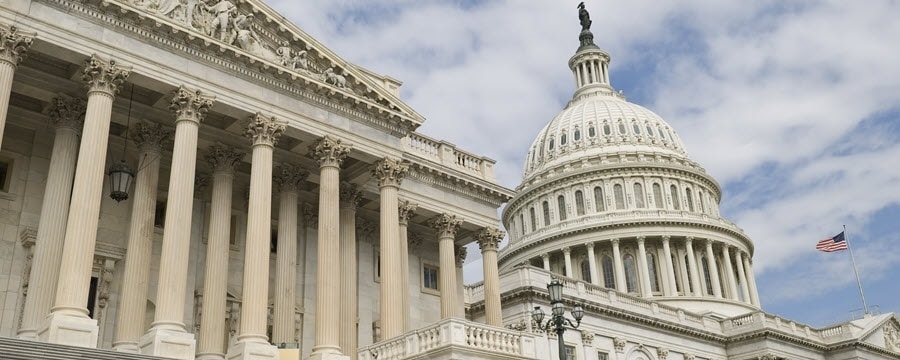- News
- Sun Jan 10
New pandemic relief package

A bill providing the latest round of pandemic relief was signed into law Dec. 27, 2020. Provisions in the bill are intended to provide additional aid to certain individuals and small businesses impacted by the COVID-19 pandemic. Key provisions include:
- Paycheck Protection Program (PPP). An additional $284 billion is authorized for eligible small businesses. The PPP program:
- Permits a first and second forgivable loan for businesses that have sustained a 25% revenue loss in the first three quarters of 2020 and have 300 or fewer employees. Not-for profit 501(c)(6) organizations under 151 employees (not lobbying organizations) are eligible.
- Clarifies and expands forgivable expenses to include supplier costs, investments in facility modifications, personal protective equipment and property damage due to public disturbances that occurred in 2020 and were not covered by insurance.
- Updates the loan-forgiveness process for PPP loans of $150,000 or less. The legislation provides for a one-page loan forgiveness application for these loans, with a more simplified process available for loans greater than $150,000 to $2 million. Additional guidance will be forthcoming from the Small Business Administration.
- Unemployment insurance (UI). The federal supplemental unemployment insurance benefits expand by $300 per week, through March 14, 2021. It is available for individuals eligible for state UI or the federal Pandemic Unemployment Assistance (PUA) program for self-employed individuals and independent contractors. In addition:
- Allows individuals receiving PUA benefits as of March 14, 2021, to continue through April 5, 2021, if the individual has not reached the maximum number of weeks — now 50 weeks under the new bill.
- A new $100 weekly benefit is also available to self-employed individuals who are not eligible for PUA but earned at least $5,000 in income.
- Economic impact payments. A second direct payment of $600 for individuals or $1,200 for joint filers is included in the legislation. Taxpayers with dependent children under age 17 will receive $600 for each child. Eligibility generally is consistent with the CARES Act requirements. Those with adjusted gross income of up to $75,000 single / $112,500 head of household / $150,000 joint will receive the full payment, and reduced payments are phased out by 5% of adjusted gross income over those limits.
- Flexible spending account (FSA) rollover provision. Employers are allowed discretion to permit additional carryover of unused health and dependent care FSA funds from 2020 to 2021. In addition, employers may also permit a carryover of 2021 FSA savings to 2022.
- Student loan provisions. Although payment deferral provisions included in the CARES Act remain unchanged through Jan. 31, 2021, there is a new provision. College students who qualify for subsidized loans — with the federal government paying the interest — no longer have a time limit to complete their education.
- Federal eviction moratorium. The eviction moratorium enacted by the Centers for Disease Control and Prevention is extended until Jan. 31, 2021, for renters and single-family homeowners. As part of the CARES Act passed in March, homeowners with a federally backed mortgage may qualify to pause or reduce payments for up to 180 days. The amount must be repaid in the future.
- Tax relief. The bill provides tax relief across a number of areas, including:
- Deductibility of expenses covered by PPP loans. The provision clarifies that tax deductions are allowed for otherwise deductible expenses paid with the proceeds of a PPP loan that is forgiven. The tax basis and other attributes of the borrower’s assets will not be reduced as a result of the loan forgiveness. Similar treatment applies for second PPP loans, and for EIDL grants, loan repayment assistance and other loan forgiveness under the CARES Act.
- Reduction in medical expense deduction floor. The provision permanently lowers the threshold for claiming an itemized deduction for unreimbursed medical expenses, permitting deduction of qualified expenses that exceed 7.5% of adjusted gross income (AGI).
- Transition from deduction for qualified tuition and related expenses. After 2020, the provision repeals the qualified tuition deduction and replaces it by increasing the phase-out limits on the Lifetime Learning credit to $80,000 single filers or $160,000 joint filers.
- Charitable contribution deductions. The provision extends the non-itemizer charitable deduction for 2021. It clarifies that the maximum deductible amount is $600 for joint filers (new in 2021) or $300 for single filers and married filers who file separately. In 2021, the deduction does not reduce AGI. For itemizers, the provision extends the higher AGI limit for 2021, allowing itemizers to deduct up to 100% of AGI.
- Employee retention tax credit (ERTC). The provision extends the ERTC to June 30, 2021. It also increases the credit rate to 70% of qualified wages and reduces the required year-over-year decline in gross receipts to 20% from 50%.
- Exclusion for certain employer payments of student loans. The provision extends through 2025 the option for employers to pay employee’s student loans tax-free up to $5,250 per year.
- Payroll taxes. The provision extends the repayment period through Dec. 31, 2021, for deferred withholding of the employee’s share of Social Security taxes (or the railroad retirement equivalent) from the period Sept. 1, 2020 – Dec. 31, 2020. Penalties and interest on the deferred unpaid tax liability will not begin to accrue until Jan. 1, 2022. Because of the complexity, only a limited number of employers deferred the employee’s portion of Social Security taxes in 2020.
We are here to help
If you or someone you care about have concerns related to this newest round of aid and could benefit from a second set of eyes, your Ameriprise advisor Peter Weinbaum, would be glad to help. Ameriprise is committed to providing personalized financial advice based on your goals and needs. https://www.ameripriseadvisors.com/peter.weinbaum
Contact Ameriprise Financial Services LLC – Peter Weinbaum
Someone will reach out to you soon!
We respect your privacy and will never spam or sell your information.


